Monday, 13 February 2023 INTERNATIONAL DAY OF WOMEN AND GIRLS IN SCIENCE
The Day of Women and Girls in Science, February 11, this year at the proposal of the United Nations, will be held under the slogan: Innovate. Demonstrate. Elevate. Advance. Sustain. ( I.D.E.A.S.). Worldwide, there is still a huge gender gap in all scientific disciplines, science, technology, engineering and mathematics. There are more and more women in higher education as well, but they are still underrepresented. According to UNESCO, less than 30% of all researchers are women.
At the University of Primorska, we have 253 female researchers who conduct research at six UP faculties and one research institute (51.4%). Among young researchers, 17 of them received training last year, of which nine were women (59%).
UP women scientists have also won numerous awards. In the ARRS's selection of achievements "Excellent in science" is included in the field of humanities the monograph "In the silence of memory Exodus in Istria" by Assoc. Prof. Katja Hrobat Virloget and, in the field of biotechnology, the article "Quantitative assessment of the risk of exposure to Mycobacterium avium subsp. paratuberculosis (MAP) through various types of milk for the Slovenian consumer" Assoc. Prof. Jasna Prezelj.
The Prometheus of Science Award for excellence in communication was awarded by the Slovenian Scientific Foundation to Assoc. Prof. Suzana Todorović for her contribution to the promotion of the dialectal image of Slovenian Istria and her cooperation in the registration of Istrobenian languages in the Register of Intangible Cultural Heritage.
The awards for scientific excellence of UP for 2021 were awarded to Prof. Elena Bužan for the field of natural sciences, Assoc. Prof. Katja Hrobat Virgolet and Assoc. Prof. Martina Blečić Kavur for the field of humanities and assoc. Prof. Tina Štemberger for the social sciences.
We asked female UP researchers, students and PhD students:
"How has the decision to do research improved their life/opportunities in life?"
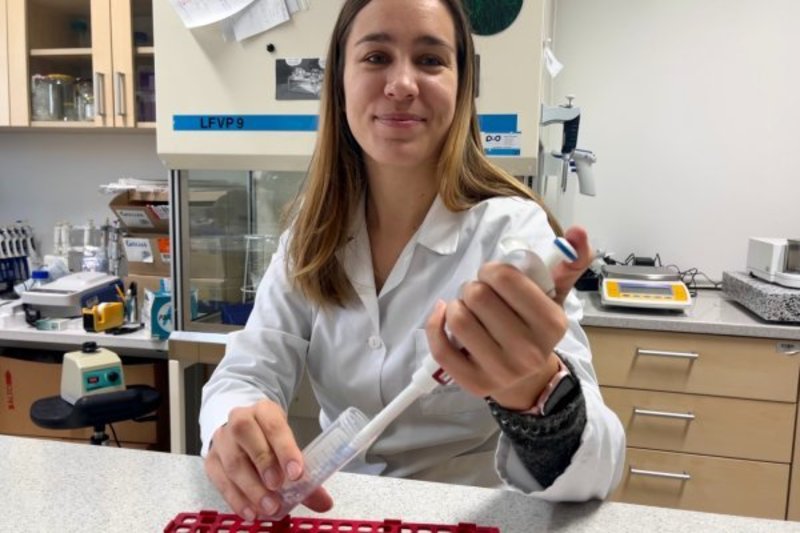 As a researcher, I have a more flexible schedule, so that I can organise my own commitments and balance them more easily with my private life. Research also gives me many opportunities for advanced training and visits abroad."
As a researcher, I have a more flexible schedule, so that I can organise my own commitments and balance them more easily with my private life. Research also gives me many opportunities for advanced training and visits abroad."
Katja Kramberger, researcher at the Department of Nutritional Counselling - Dietetics, UP FVZ
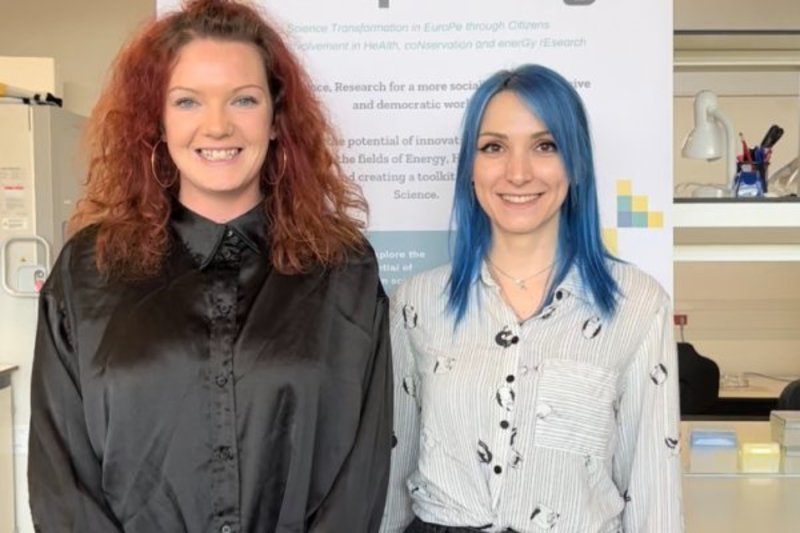
Minja: We've been fascinated by science since we were kids.
Aja: As part of our studies in Conservation Biology and Nature Conservation, we knew that we had to acquire additional competences alongside our studies. During our studies, we were actively involved in various student-funded projects, such as the "On the creative path to knowledge". Minja: So here we are today: two women in science working in the field of molecular ecology at the University of Primorska.
Aja: For us researchers, science is much more than just a job; it is our mission and our joy. Minja: If you also enjoy science, help researchers to obtain data on Slovenia's wildlife. As part of the Step Change project, we have developed the SRNA app, which allows all of you citizen scientists to help researchers collect data and monitor the status of Slovenia's wildlife.
Aja: Through this link, you too can become citizen scientists!
Aja Bončina, researcher at the Department of Biodiversity, UP FAMNIT (left in the picture) | Minja Krstić, researcher at the Department of Biodiversity, UP FAMNIT (right in the picture)
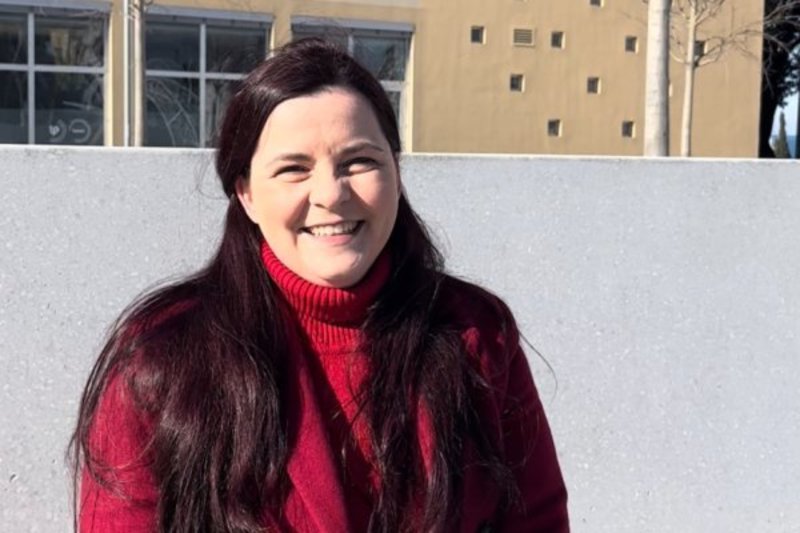 "My research is primarily in algorithmic graph theory. It is a young field, but it is developing very fast, and UP FAMNIT offers me opportunities to participate and organise international conferences, which enable knowledge transfer, even faster progress of science and co-authored papers with experts from all over the world."
"My research is primarily in algorithmic graph theory. It is a young field, but it is developing very fast, and UP FAMNIT offers me opportunities to participate and organise international conferences, which enable knowledge transfer, even faster progress of science and co-authored papers with experts from all over the world."
Nina Chiarelli, Assistant Professor of Mathematics at UP FAMNIT and researcher at UP IAM
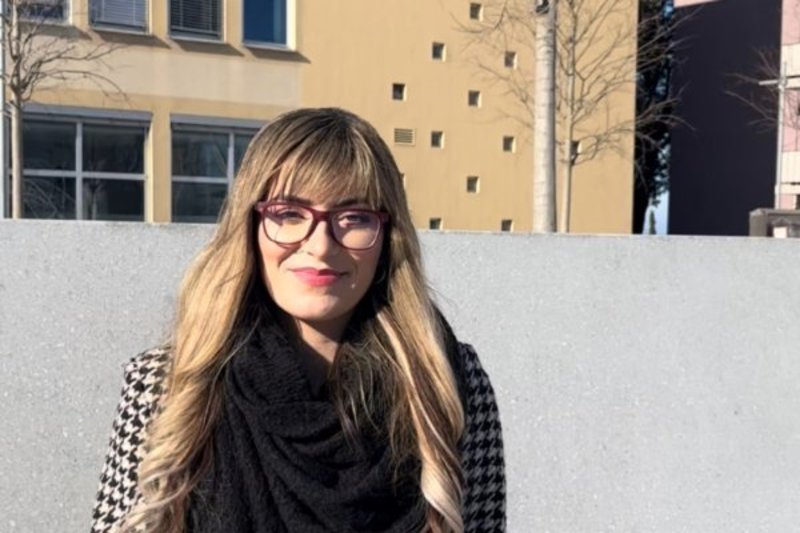 "During my studies, my desire to research suicidal behaviour was sharpened, which led me to the opportunity to work at the Slovenian Centre for Suicide Research at the UP IAM, where I am currently based. At the centre we are involved in various research and intervention projects. On the one hand, we are researching various factors associated with suicidal behaviour, protective factors, and on the other hand, we are integrating these findings into intervention programmes, projects and in this way "giving back" to society. The projects are well received by both the national and international public. As an example of the success of our work, we have been entrusted with the co-organisation of 32. World Congress of the International Association for Suicide Prevention.
"During my studies, my desire to research suicidal behaviour was sharpened, which led me to the opportunity to work at the Slovenian Centre for Suicide Research at the UP IAM, where I am currently based. At the centre we are involved in various research and intervention projects. On the one hand, we are researching various factors associated with suicidal behaviour, protective factors, and on the other hand, we are integrating these findings into intervention programmes, projects and in this way "giving back" to society. The projects are well received by both the national and international public. As an example of the success of our work, we have been entrusted with the co-organisation of 32. World Congress of the International Association for Suicide Prevention.
Attending and co-organising such congresses allows me to network with both local and foreign experts, which promotes a faster transfer of knowledge and insights. At the same time, it sharpens those aspects that remain unexplored or that require our further attention."
Vanja Gomboč, researcher at UP IAM (Slovenian Centre for Suicide Research)
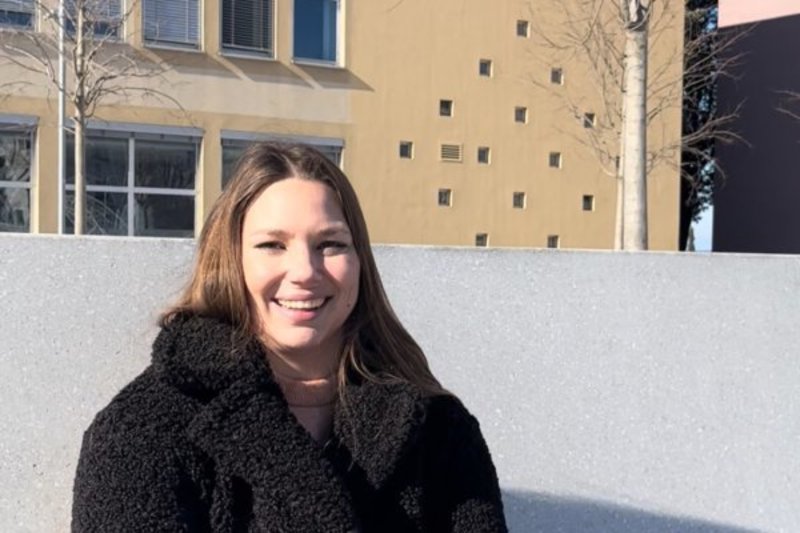 "I am currently working on my master's thesis, in which I am researching anxiety, stress and depression among female handball players in Slovenia. I am happy that, in addition to seeing the issues first-hand, as a former athlete, I am now also learning about them as a researcher. I hope to use this knowledge as a sport psychologist to help sportswomen and sportsmen in my future career."
"I am currently working on my master's thesis, in which I am researching anxiety, stress and depression among female handball players in Slovenia. I am happy that, in addition to seeing the issues first-hand, as a former athlete, I am now also learning about them as a researcher. I hope to use this knowledge as a sport psychologist to help sportswomen and sportsmen in my future career."
Lea Kranjc, Master's student in Biopsychology & full-time student of the Master's programme in Psychology at UP FAMNIT, former elite athlete
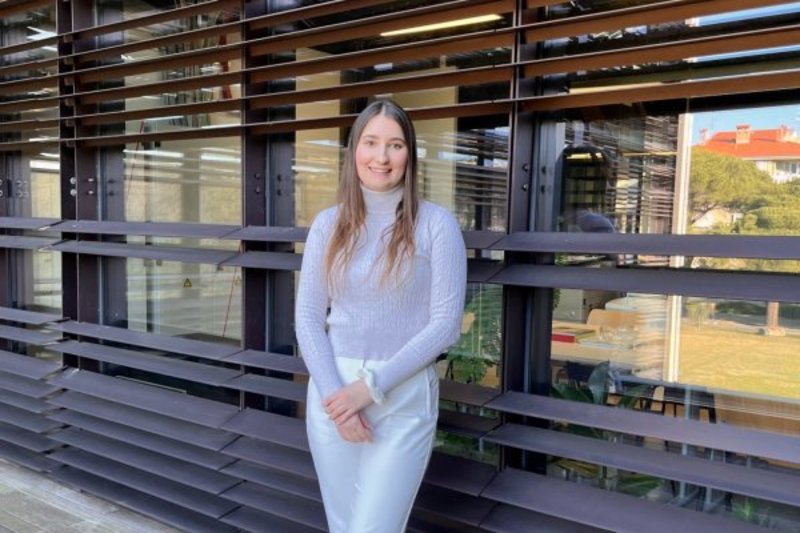 "I am grateful to have the opportunity to be involved in research work, projects during my studies, such as the "Creative Path to Knowledge" or the Student Innovation Projects for Social Benefit".
"I am grateful to have the opportunity to be involved in research work, projects during my studies, such as the "Creative Path to Knowledge" or the Student Innovation Projects for Social Benefit".
Lana Erjavec, student of the Master's degree programme Physiotherapy
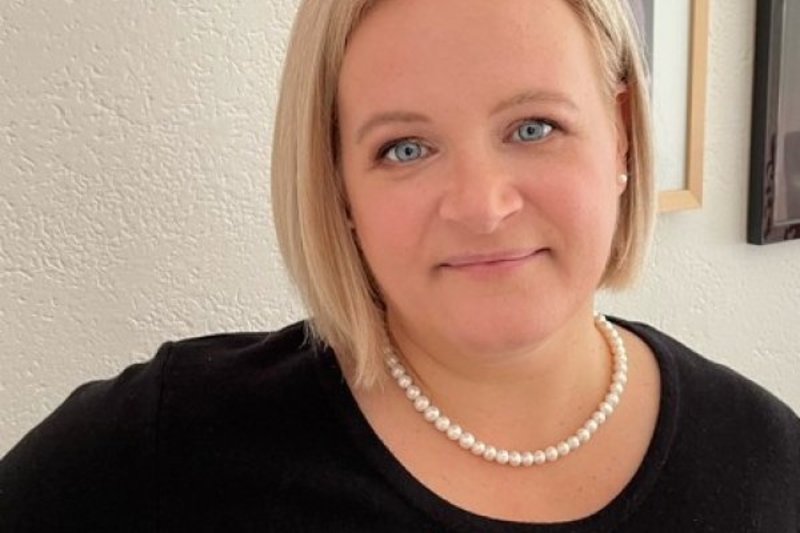 "During my PhD at UP FHŠ, my mentor, Prof. Dr. Nives Zudič Antonič, repeated several times that real research work starts only after the completion of studies. Of course, this turned out to be true. Working in scientific research requires a lot of effort and time. It is sometimes difficult to balance work and private life, so I would not say with certainty that my life has turned around for the better. In some ways, it may even have made everyday life more difficult, because I have less free time for myself, my family and my friends. On the other hand, I have to admit that scientific research also improves me because it is very creative work. This profession allows me to be part of a wider European environment where I meet new people with whom I can exchange experiences and broaden my knowledge. But I also notice that the research environment, despite the efforts to promote gender equality in science, is still very much a male world in which women scientists are under-represented."
"During my PhD at UP FHŠ, my mentor, Prof. Dr. Nives Zudič Antonič, repeated several times that real research work starts only after the completion of studies. Of course, this turned out to be true. Working in scientific research requires a lot of effort and time. It is sometimes difficult to balance work and private life, so I would not say with certainty that my life has turned around for the better. In some ways, it may even have made everyday life more difficult, because I have less free time for myself, my family and my friends. On the other hand, I have to admit that scientific research also improves me because it is very creative work. This profession allows me to be part of a wider European environment where I meet new people with whom I can exchange experiences and broaden my knowledge. But I also notice that the research environment, despite the efforts to promote gender equality in science, is still very much a male world in which women scientists are under-represented."
Dr. Lara Sorgo, (former) PhD student at UP FHŠ




